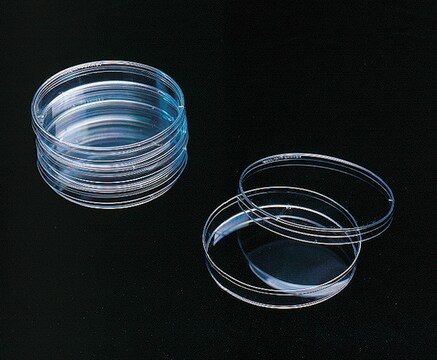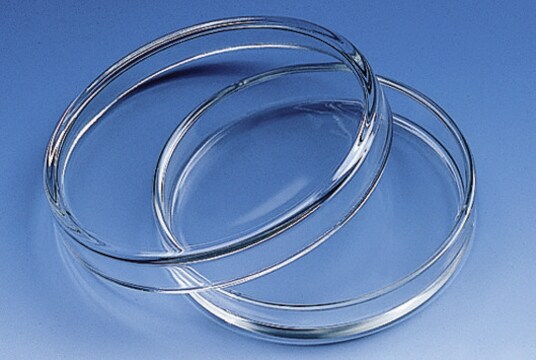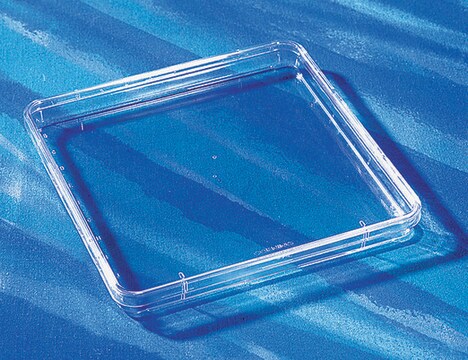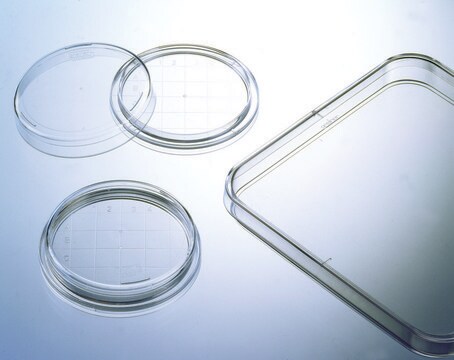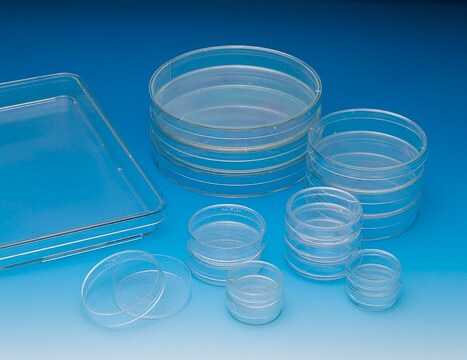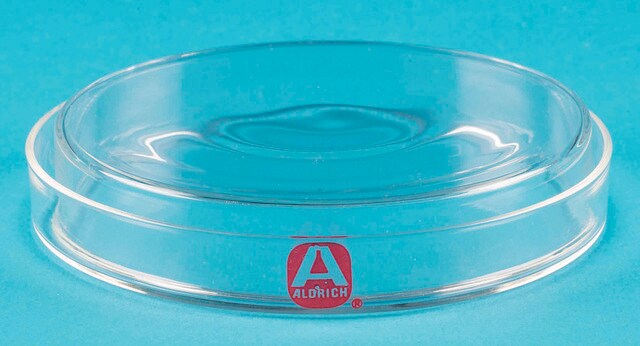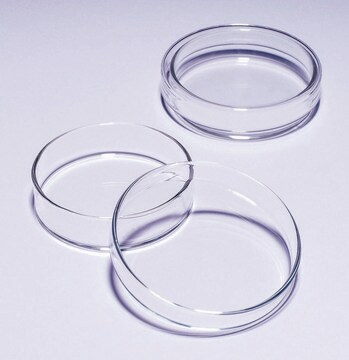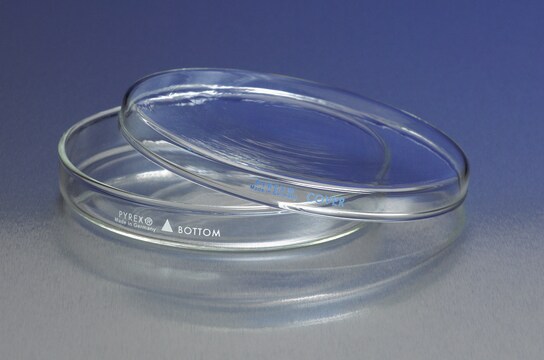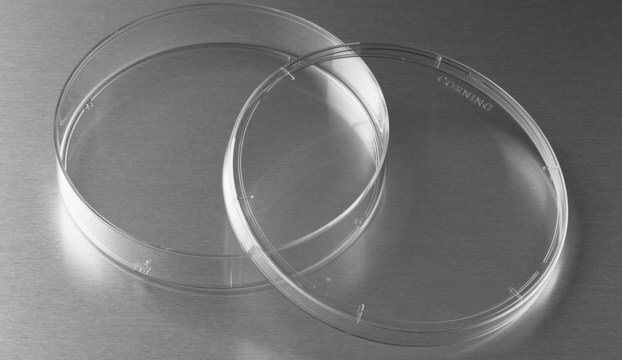Z717231
Nunc® petri dishes
diam. × H 140 mm × 20 mm, surface area 145 cm2, vented
Synonym(s):
culture dishes, disposable petri dishes, plastic petri dishes
About This Item
Recommended Products
material
polystyrene
round
sterility
sterile; γ-irradiated
sterile
feature
lid
packaging
pack of 10 ea
case of 80 ea (Internal pack of 10)
manufacturer/tradename
Nunc 249964
diam. × H
140 mm × 20 mm
dish capacity
~300 mL
dish diam. × H
140 mm × 20 mm
surface area
145 cm2
volume × working volume
250 mL × 35 mL
binding type
non-treated surface
Looking for similar products? Visit Product Comparison Guide
General description
- For culturing of fungi, bacteria and other microorganisms
- Contact dish useful for sampling in hospital environments (for research use only), as well as in food science and the pharmaceutical industry
- Perform well in automatic dispensers due to complete flatness and uniform height
- Available with a moulded grid
- Deep Petri Dishes allow for longer culture periods
- Compatible with automated systems
Please note: Due to these dishes being constructed of polystyrene (not glass) the walls of the dish may be thinner; this results in a size difference in the outer diameter of approx 10 mm.
Legal Information
Choose from one of the most recent versions:
Certificates of Analysis (COA)
It looks like we've run into a problem, but you can still download Certificates of Analysis from our Documents section.
If you need assistance, please contact Customer Support.
Already Own This Product?
Find documentation for the products that you have recently purchased in the Document Library.
Customers Also Viewed
Our team of scientists has experience in all areas of research including Life Science, Material Science, Chemical Synthesis, Chromatography, Analytical and many others.
Contact Technical Service

